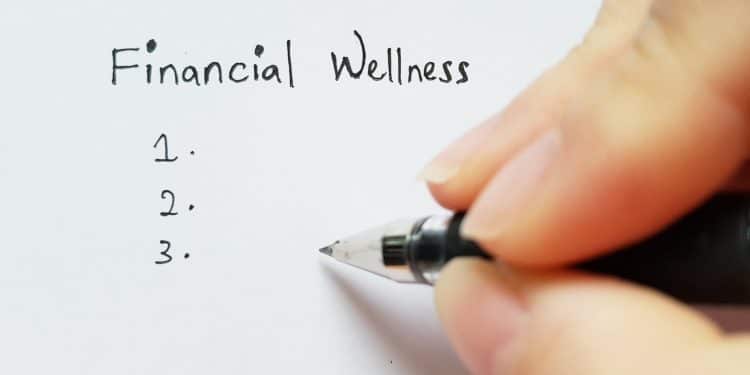There was a time when self-care meant scented candles and bubble baths. But today? Self-care is starting a savings plan. Paying off your credit card. Learning to budget. In a world where stress is often rooted in money problems, financial wellness has become the new face of balance and peace. This shift is not just practical; it is empowering. Feeling in control of your money impacts your health, your sleep, and even your relationships. This blog explores why financial wellness is becoming just as essential to your well-being as meditation or a morning jog—and how you can start prioritizing it now.
Why Financial Wellness Deserves a Spot in Your Self-Care Routine
We are finally acknowledging the obvious: money stress hurts. From anxiety about bills to fear of not having enough savings, your finances affect your mental and physical health. That is why financial wellness is no longer just about investing or retirement. It is about your day-to-day peace of mind.
The concept involves more than budgeting. It includes:
- Understanding your income and expenses
- Building a safety net
- Managing debt wisely
- Making informed financial decisions
This mindset gives you control—and that is the foundation of confidence.
A helpful place to start is the Finance Finest Budgeting category, which provides tools and articles to help build strong financial habits.

The Mental Health Link You Cannot Ignore
Studies show that people with high financial stress are more likely to suffer from anxiety, depression, and insomnia. When you are unsure about covering next month’s rent or your emergency fund is non-existent, your nervous system stays on high alert.
Financial wellness helps break that cycle.
When you know where your money is going and what you are saving for, you reduce financial uncertainty. It is not about being rich—it is about being prepared. This preparation translates to less emotional strain, better focus, and an overall healthier mindset.
For insights that support both emotional and financial clarity, check out the Finance Finest Mindset section.
From Green Juice to Green Sheets: A Cultural Shift
Self-care used to mean indulging. Now it often means simplifying. Cutting back. Making intentional choices. Financial wellness fits perfectly into this evolving definition.
Today’s generation is redefining what it means to be well:
- Opting for needs over wants
- Prioritizing saving over splurging
- Practicing delayed gratification
Just like skipping junk food benefits your body, skipping impulse purchases benefits your future. In this way, financial wellness becomes a quiet act of self-respect—choosing what is good for you long-term, not just what feels good now.
Why Financial Wellness Feels Empowering
There is power in financial clarity. When you track your spending, eliminate waste, and make smart money moves, you feel more grounded in every area of life. That stability is what makes financial wellness feel so empowering.
Here is what happens when you take control:
- You sleep better
- You say “no” with confidence
- You stop fearing the end of the month
- You plan more, react less
That feeling? It is wellness. It is freedom. And it is far more sustainable than a weekend detox.
For practical lifestyle adjustments that align with your money goals, explore the Finance Finest Lifestyle category.
Making Money Moves That Feel Good (and Smart)
Let us be honest—saving money is not always fun. But you can make it satisfying.
Try these shifts:
- Track like you would a fitness goal. Use budgeting apps to monitor spending habits like steps or calories.
- Celebrate milestones. Paid off a credit card? That is a win. Treat it like one.
- Gamify your savings. Set challenges: no-spend weeks, cash-only days, or a monthly reward for hitting a savings goal.
Financial wellness works best when it feels intuitive—not restrictive. Apps like PocketGuard can help you identify how much free spending money you have after covering essentials, keeping your habits aligned with your financial wellness goals.
Budgeting: The Self-Care Habit You Did Not Know You Needed
Think of your budget as your financial nutrition plan. It is not there to punish you; it is there to fuel your life goals.
A few rules that make budgeting part of your wellness routine:
- Give every dollar a job
- Automate your savings
- Include a guilt-free “fun” category
- Review weekly to stay mindful
- Use apps like You Need a Budget (YNAB) to structure your spending plan and make budgeting feel more like a personal fitness routine than a restriction.
Budgeting builds discipline. And discipline builds freedom. That freedom is the core of financial wellness.
Investing in Yourself: Literally
Financial wellness includes investing—not just in the market, but in your own growth. Whether that is a skill-building course, a therapy session, or even a better mattress, spending with purpose is part of this trend.
Ask yourself before each major purchase:
- Will this bring value in the long run?
- Is this aligned with my financial goals?
- Am I choosing this consciously?
When your answer is “yes,” you are not just spending. You are investing in well-being.

How Relationships Benefit from Financial Wellness
Money arguments are a top cause of relationship stress. But when both partners are financially self-aware, discussions become less combative and more collaborative.
Tips for bringing financial wellness into your relationship:
- Share goals, not just expenses
- Use joint apps to track mutual savings
- Celebrate financial wins together
- Practice financial transparency
- Tools like Monarch Money allow couples and families to share budgets, track progress, and strengthen their financial wellness together.
The goal is to build not only wealth but trust. Financial wellness strengthens communication and planning in relationships, just like good sleep or shared meals do.
Financial Wellness for Every Life Stage
You do not need to be 40 with a mortgage to care about financial wellness. It starts wherever you are:
- Students: Track student loans, start emergency savings
- Young professionals: Budget for rent, automate retirement savings
- Parents: Plan for education, insurance, and debt payoff
- Retirees: Focus on maintaining peace of mind with consistent income
Self-care looks different at every age—but financial clarity always plays a role.
Everyday Habits That Support Financial Wellness
Sometimes it is the small, everyday habits that make the biggest difference. Consider adding these into your week:
- Meal prep instead of ordering out
- Use a refillable water bottle
- Cancel unused subscriptions
- Use public transport when possible
- Set a weekly spending limit
Financial wellness is built slowly and steadily. It is not a one-time cleanse; it is a lifestyle. And with the right approach, it becomes second nature.
Where Apps and Tools Fit In
Technology can simplify your journey to financial wellness. Here are a few useful apps to explore:
- YNAB (You Need a Budget): Ideal for zero-based budgeting
- PocketGuard: Helps you avoid overspending
- Goodbudget: An envelope system app for modern users
- Monarch Money: For couples or shared goals
- Zeta: Built for families and partners
When tech helps you save or track smarter, it turns your phone into a tool for wellness—not just distraction.
The Role of Financial Education in Wellness
If you are new to budgeting or debt management, do not worry. Financial wellness is not about knowing everything—it is about being willing to learn.
Use the resources available to you. Blogs, videos, and financial literacy courses can boost your confidence. Knowledge builds confidence. And confidence builds peace of mind.
Why Financial Wellness Will Only Grow Bigger
This is not a fad. Just as mental health became a mainstream topic in the past decade, financial wellness is now stepping into the spotlight. Brands, workplaces, and influencers are all recognizing that money health is mental health.
Expect to see:
- More companies offering financial coaching
- Wellness programs that include money literacy
- Schools integrating financial education
- Apps that merge budgeting with mindfulness
Financial wellness is not just the new self-care—it is the next evolution of it.
Redefining What It Means to Feel “Well”
Wellness is not just about green smoothies and yoga anymore. It is about stability. Calm. Clarity. And financial wellness gives you that.
Think about it:
- A spa day lasts a few hours. An emergency fund gives peace of mind for months.
- A shopping spree might feel good now. A paid-off loan feels good every day.
- A scented candle helps you relax. A clear financial plan helps you breathe easier—every single night.
Wellness That Builds Generational Impact
One of the most underrated parts of financial wellness? Legacy.
When you take care of your finances, you model strength and discipline for your family. You teach your children, siblings, or community what stability looks like.
That ripple effect outlasts you—and that is the highest form of self-care there is. Platforms like SaverLife gamify the savings process and reward smart habits, making it easier to model financial wellness for future generations.

Reclaiming Peace Through Financial Wellness
Let us say it clearly: self-care is not just about pampering—it is about protecting your peace. Financial wellness gives you the tools to stop worrying, start planning, and live more freely.
It is not always glamorous. But it is always worth it.
Start with small steps. Track your spending. Set a savings goal. Read a finance blog. Reclaim your peace through the power of money clarity.
And yes—sometimes, buy the bubble bath too.
Take control of your money and mindset with expert guidance from Finance Finest.
